Apple Farmers Earn More By Selling Kinnaur’s Famous ‘Black Gold’ Directly to Consumers
Ashish Negi left his engineering career to revive ancestral apple orchards in Kinnaur. He now runs 'Kayang' to empower local farmers by directly supplying Kinnauri apples to customers, eliminating middlemen and other exploitative market practices.
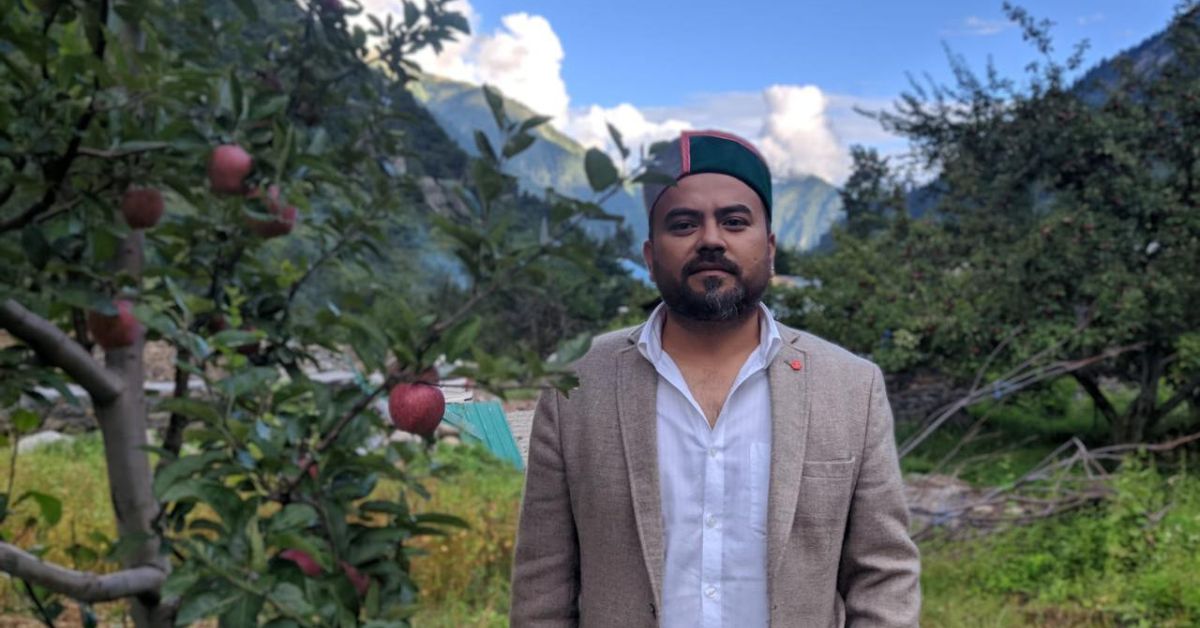
Nestled in the eastern part of the Sutlej River in the Kinnaur district of Himachal Pradesh, Bhaba is a pristine valley surrounded by snow-clad peaks, lush valleys full of apple orchards, and tall pine trees.
Its irresistible beauty, tranquil environment, and rocky mountainscape attract thousands of tourists every year. However, one of its residents, Ashish Negi, was deprived of its charm when he moved out for work in crowded cities.
“I have always admired our tribal ways of living — quaint village setting, simplicity of people, culture, and traditions that have been followed for thousands of years. My village in Kinnaur is a gem of a mountain place. We have a very small population and the pollution level is almost zero,” Ashish, who hails from Huri village, tells The Better India.
Despite his strong longing, he would be able to come back to his hometown only once a year. Eventually, in 2011, he quit his four-year-long career in mechanical engineering to move to his village permanently.
More than the desire to reconnect with his roots, Ashish yearned to look after his ancestral apple orchards that were lying unattended. “While Kinnaur is known worldwide for its apples, our orchards were abandoned as there were no young members in my family to look after them. The land was losing its richness and I couldn’t bear that. It was one of the prime reasons why I decided to come back,” he shares.
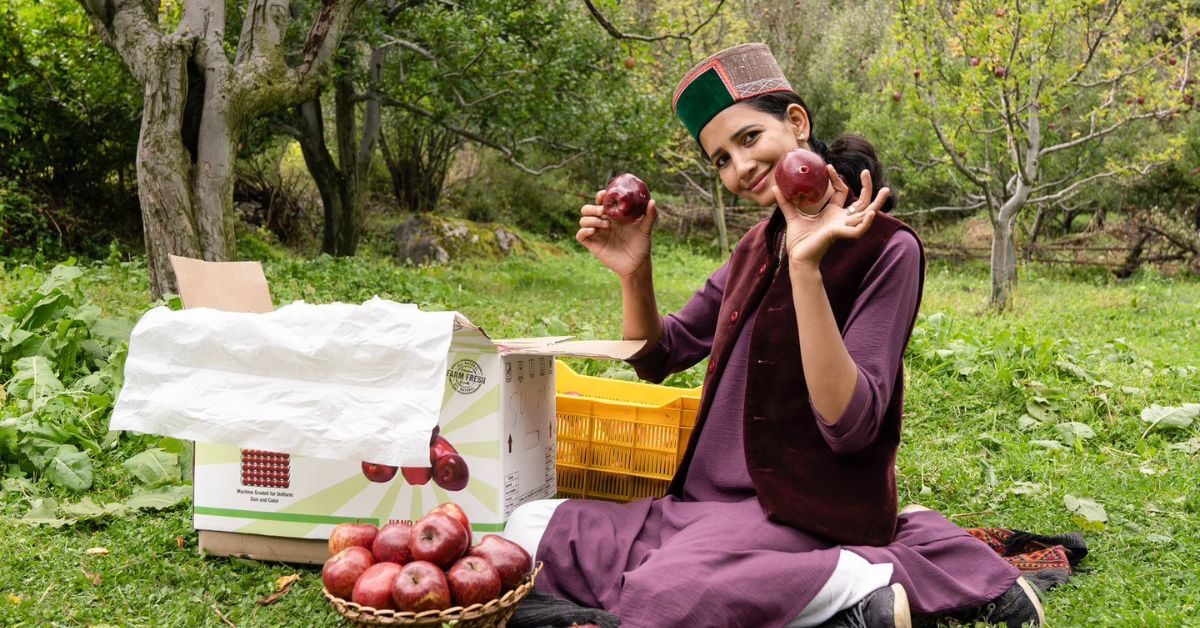
Not only did Ashish restore his apple orchards but also became a saviour to at least 1,000 small apple farmers of Kinnaur. Today, he runs a startup ‘Kayang’ to supply Kinnauri apples to customers directly — saving them from a vicious circle of middlemen.
Homecoming and the moment of truth
After coming back to his village, the first thing Ashish did was to learn how to become a farmer before entering into the apple business. He picked up a shovel and started working on the apple orchard, which he says was not in great shape. It took him three to four years to make the 15-bigha farmland cultivable.
Today, he owns the 1,500 apple trees in his orchard and also grows other crops — including wild apricots, pulses, rajma (red kidney bean), seasonal vegetables, and buckwheat.
When he went to the local market to sell his produce, he observed that the tribal growers were at the mercy of middlemen. Sharing his first-hand experience, he says, “The whole market system was totally corrupt, biased, and against farmers. It favoured big firms, companies, and middlemen. At least five distributors are involved before the apples reach from the grower to the consumer. These people benefit more than the grower.”
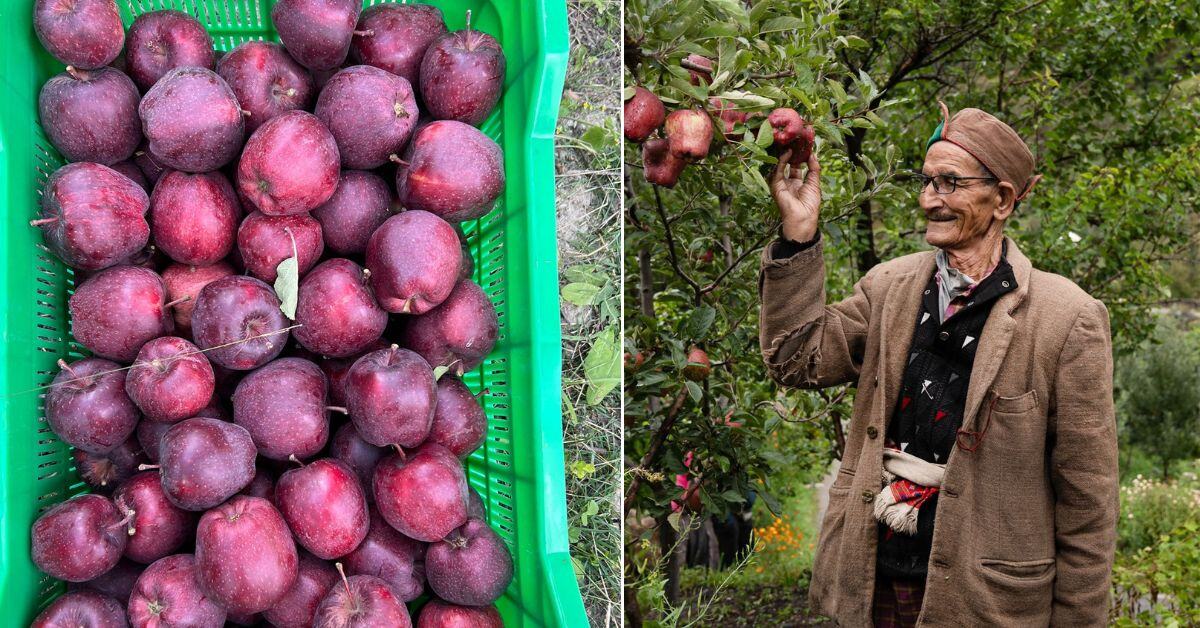
Ashish adds that Kinnauri apples are one of the most expensive ones in the world, and yet, the apple growers never receive their fair share. “They would get payment almost 15 to 20 days late or sometimes after six months; and in some cases, nothing at all. Apples were sold for Rs 300 per kg in the market but the grower would get only Rs 60 – five times less than its market value. This corrupt system has been in practice for 50 to 70 years, and nobody voiced the problems of these small farmers. Despite this, farmers had been working with utmost honesty” he shares.
It was heartbreaking for Ashish to see the market apathy for farmers. “Growing crops is not a cakewalk and growing apples is certainly not easy. Usually, any plant requires three or four months of care but apples require a minimum of nine to 10 months of care. We only harvest once a year and look after the tree for the remaining months. You’ll see an apple farmer every day in the field, come what may — pest attacks, hailstorms, unseasonal rains, and snow. They nurture and protect them like a baby,” he adds.
Being a farmer himself, Ashish decided it was high time to redirect the system.
There’s gold in them thar hills
In 2015, Ashish launched an online platform ‘Kayang’ to end the woes of farmers and bring them profits directly from end-consumers. The apples are directly sourced from small farmers. After sorting, grading, and packaging, the company transports them to consumers across India. For this, a team of 300 people is employed.
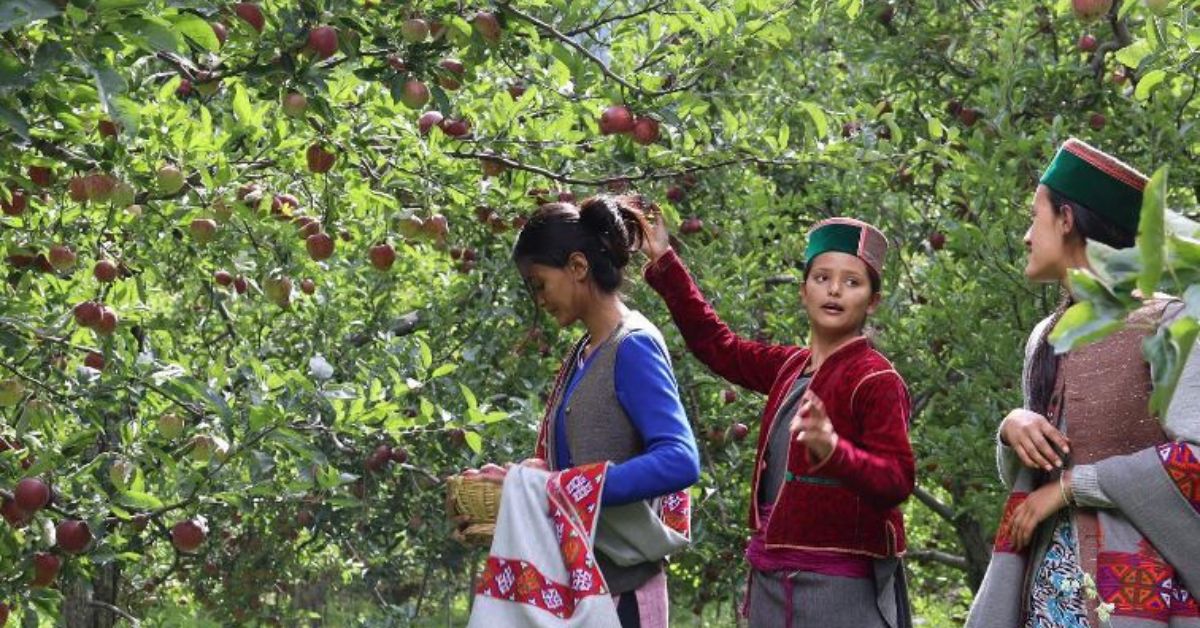
One of the farmers, Gajendra Singh tells The Better India, “Earlier, we had to spend our time, energy, and money on labourers to sort, pack, and transport produce to the local market. Despite all the hard work, we wouldn’t get decent pay because of middlemen. We would get payments only after a month.”
“Now, people from Kayang come to our orchards and take care of all the work from sorting apples to transporting them to end consumers. Initially, we would only get Rs 2,100 per peti [1 trunk = 22 kg of apples]. Now, we earn up to Rs 3,000 and get payments on the same day,” adds the 32-year-old, who earns Rs 15 lakh annually by selling the Royal Black variety of apples.
With the help of Kayang, Ashish says farmers have observed an income boost of up to 20 percent. The startup takes a profit margin of 2.5 percent to sustain the business.
Sold at Rs 350 per kg, these organically grown Kinnauri apples have major consumers in Delhi, Bengaluru, Hyderabad, and Chennai.
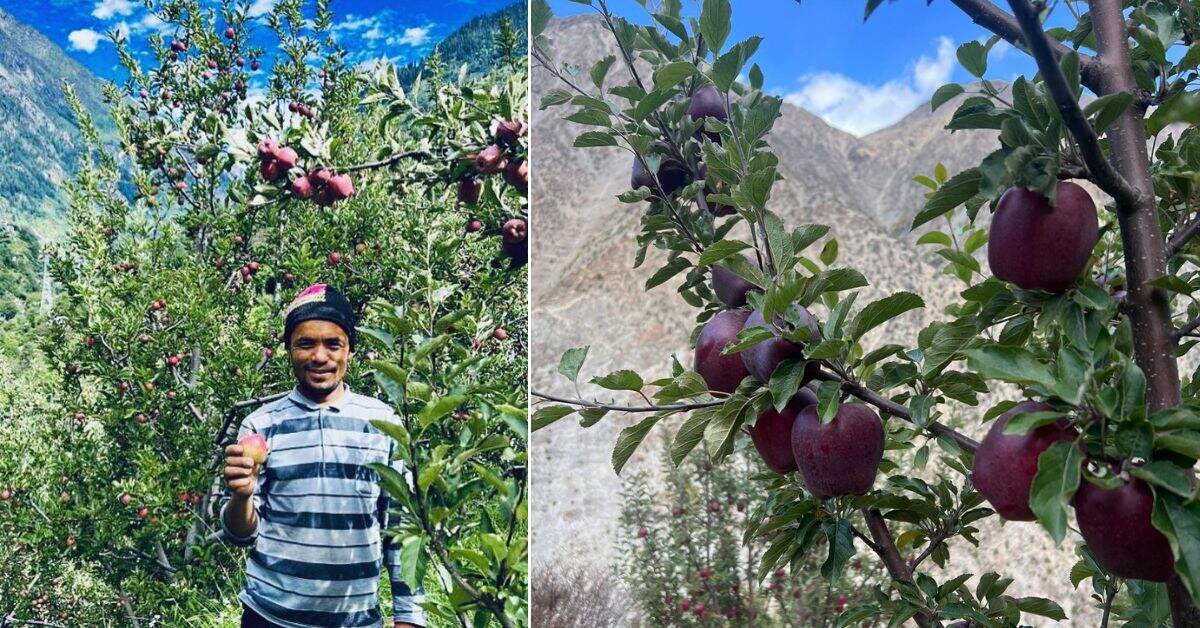
Among the popular varieties grown in the region, their Royal ‘Black Gold’ apples have a huge demand among buyers. “Compared to the reddish-coloured apples, these are darker in colour and one of the costliest apples worldwide. That’s how it gets its name, Black Gold. Its taste, crunchiness, and juiciness add to its uniqueness. That’s why it has a high value. And these can be grown only in our region given our climatic conditions,” he says.
This year, Ashish aims to commercialise value-added products of these apples to further the income of regional farmers. “We aim to process apples into jams, vinegar, juices, and healthy dried apple chips. Our processing unit will be operational from September onwards,” he reveals. If you found our stories insightful, informative, or even just enjoyable, we invite you to consider making a voluntary payment to support the work we do at The Better India. Your contribution helps us continue producing quality content that educates, inspires, and drives positive change. Choose one of the payment options below for your contribution- By paying for the stories you value, you directly contribute to sustaining our efforts focused on making a difference in the world. Together, let’s ensure that impactful stories continue to be told and shared, enriching lives and communities alike. Thank you for your support. Here are some frequently asked questions you might find helpful to know why you are contributing?

Looking back at his city life, Ashish finds contentment in rural farm life. “I enjoy my field of work as I get to meet real India – its small farmers. With my work, I see improvements in front of me every day. These farmers were once in distress and at the mercy of middlemen. To be able to help them even on a very basic level is so fulfilling. We are not just helping a person, we’re helping the whole family and the community,” he adds.
Edited by Pranita Bhat; All photos: Ashish Negi.
This story made me
- 97
- 121
- 89
- 167











